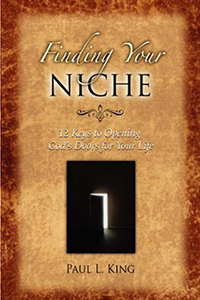“Judge not that you be not judged” (Matt 7:1).
“Judge with righteous judgment” (John 7:24).
The two commands from Jesus above appear to be contradictory—and yet they are not. Unfortunately, our English language is limited and often fails to distinguish the nuances in judgment and discernment. This is where being a Berean—examining the Scriptures closely (Acts 17:22)—comes into play.
A few years ago I had the experience of being judged harshly for not judging harshly certain other people and ministries who had some questionable beliefs and practices. I was falsely accused of siding with those people and ministries because I did not condemn them completely outright and I was told I was totally undiscerning. That experience sent me on a heart-searching study of Scripture regarding discernment, judgment, and condemnation. It was enlightening as well as freeing from the condemnation I received.
To be truly discerning it is vital to understand that discernment is not judgment and judgment is not discernment, Discernment is implied in the making of a judgment, but it does not guarantee in human cases that the judgment is wise and right. I found that Scripture has a continuum of judgment, or various levels and degrees of appropriate and inappropriate judgment.
God is the only source of righteous judgment. Only God is a righteous judge (2 Tim 4:8; Rom 2:5; 2 Thess 1:5). In fact, God is The Righteous Judge, The Ultimate Judge, par excellence. As The Righteous Judge, He and He alone judges totally impartially, totally fairly. He justly rewards those who have met His impartial standard. He looks not on the outside appearance, but looks on the heart (John 7:24). Only God knows the inner heart.
Jesus exhorts us that righteous judgment is not based on observation. It does not judge by appearance, what is external or what appears on the surface. Jesus Himself is our human model of perfect, righteous judgment (Isa 11:2a, 3, 4a). Jesus does not judge by what He sees or hears, but exercises righteous judgment from the Holy Spirit.
We are commanded to follow Jesus and exercise righteous judgment by not looking on the outside—what we see or hear—but on the inside, in the heart (John 7:24), which only God knows. Looking at the heart first involves seeing as God sees, then our part involves discerning analysis and thorough, in-depth discernment through the Holy Spirit and the Word of God.
Righteous judgment is God’s judgment—not human judgment. It is totally impartial, fair, just—like God. It discerns the heart—the heart of the matter and the heart of the person. It is not critical of people. In other words, we critique the teaching, not criticize the teacher. We critique the practice or manifestation, not criticize the person. When we criticize the person, not knowing the heart as God does, we exercise unrighteous judgment in the flesh. We apply righteous judgment when we exercise discerning analytical appraisal and thorough in-depth discernment, consulting the expert judgment of the Word of God, and thus seeing through to the heart.
Let us pray, “Search me, O God, and know my heart, try me and know my thoughts, and see if there is any hurtful way in me, and lead me in the way everlasting” (Ps 139:23-24). Then let us respond in contrition to what He reveals to us.
This is adapted from Chapter 7 of my newest book Is It of God? You can purchase it at my website www.paulkingministries.com



Leave a Reply